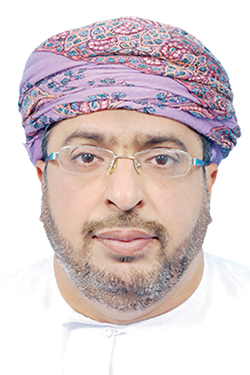

Haider Al Lawati - haiderdawood@hotmail.com - Nobody denies the Sultanate has been sparing no effort in developing economic sectors in line with the economic diversification policy and the “post-oil era”.
This has given rise to various industrial estates and free zones across the country. These estates comprise hundreds of companies that manufacture goods and commodities with the goal of replacing imported products.
The Sultanate has been making efforts to develop the tourism sector, which includes several companies, to support the sector and increase its GDP to six per cent by 2020.
Various other sectors, besides oil, witnessed booming activity, such as agriculture, fisheries, mining and logistics, supporting Omani trends for making the Sultanate a re-export hub of different commodities and products to the region, Asia and Africa during the upcoming period.
Also, it is undeniable that the prevailing low oil prices throughout global markets have led to sluggish economic activity in the oil-producing countries, which is the case in the Sultanate and the rest of Gulf countries.
It is normal for the added value of the oil sector to go down with the decline in prices, resulting in a dip in the country’s Gross Domestic Product (GDP) as well.
Those concerned are required to implement further reforms that ultimately aim at boosting non-hydrocarbon revenues and move forward with the economic diversification policy through which more achievements can be made in all fields even during crises caused by falling oil prices.
Meanwhile, we observed the IMF statement regarding Oman confirms the fact that falling oil prices have prompted both government and the public sector to speed up the economic diversification policy and boost the role of the private sector.
All this through the facilitation of services, enhancement of business environment and improvement of government adequacy for the purpose of attracting further foreign investment, which facilitates entry into various investment ventures of relevance to the private sector.
A further development of Small and Medium Enterprises (SMEs) sector is required as they have the potential to create additional employment opportunities and increase non-hydrocarbon exports in the coming years, along with the need to keep up necessary reforms in order to promote the country’s comprehensive development process.
In this regard, private sector companies have set out to support the Sultanate’s target of economic diversification.
For instance, Oman Chamber of Commerce and Industry (OCCI) recently adopted a decision to establish the Omani Investment Council (OIC) as an initiative to activate the role of private sector companies and institutions and entrepreneurs in attracting foreign investment to Oman.
The first of its kind in Oman, OIC comprises membership of a group of prominent and influential Omani businessmen, and owners of capital and investment seekers, especially in non-hydrocarbon sectors such as tourism, fisheries, mining, services and others.
All these initiatives, made by OCCI and private sector, aim at supporting government plans and programmes in the field of economic diversification, particularly in light of unstable global oil prices, and seeking to attract both local and foreign investments as this is considered a strategic goal in the Sultanate’s policy through the upcoming Five Year Plans and in its economic vision (Oman 2020-2040).
While preparing for the post-oil era, the Sultanate is also seeking to mark other achievements in the oil and gas sectors. Such additions have come from new discoveries and re-evaluation of production fields.
Oman’s total reserves of oil and condensates reached approximately 5,373 million barrels and 22.99 trillion square feet of gas by end of 2015.
Meanwhile, the government is planning to support this sector through the establishment of oil storages and refineries together with mega factories for plastic and petrochemicals manufacturing and other oil and gas-dependent factories.
Oman Observer is now on the WhatsApp channel. Click here



